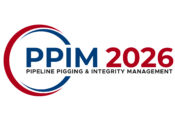COURSE SCHEDULE (both days)
7.30: Registration, breakfast, coffee
8.00 – 5.00: Course
It will be necessary to bring a laptop to this course.
NEED FOR THE COURSE
The threat from geohazards has received increasing attention among operators and regulators over the last decade. Several notable failures have received public attention, and PHMSA has stated their intent to focus on geohazards and has released two bulletins specifically addressing geohazards since 2019. Many operators are challenged with how to manage geohazards and the lack of clear requirements in this space make it difficult to know where to begin. This course will cover the basic level of information necessary for operators to understand and begin addressing geohazards.
LEARNING OBJECTIVES
By the end of the course, attendees should understand the following:
- How do geohazards cause pipeline failures?
- What are the elements of a geohazard management program?
- What tools are available to manage geohazard threats?
- How can geological and ILI-based assessments be utilized in a geohazard program?
- When are in-situ investigations necessary?
- What are the key considerations in implementing monitoring, pre-emptive mitigation and post-event remediation?
WHAT YOU WILL LEARN
- New Integrity Engineers attending this course will receive exposure to the geohazard management process including terminology and the tools used in the assessment of the geohazard threat.
- Senior Integrity Engineers would gain a deeper understanding of geohazard assessment and mitigation methods, including response criteria and mitigation options.
CONTINUING EDUCATION UNITS
On completion of the course, participants will be awarded 1.4 CEUs.
WHO SHOULD ATTEND
Pipeline engineers, managers and service professionals who are involved with the operation, maintenance, inspection and repair of pipelines.
INSTRUCTORS
Alex McKenzie-Johnson is President of Tricoast Geoservices, Inc., a consultancy that helps pipeline operators to address technical and regulatory issues concerning geohazards. For more than 20 years, Alex has been at the forefront of geohazard management, working with pipeline operators across North America to develop and refine industry best practices. As a consultant, project manager, and lead author of key guidance documents and standards, he has played a pivotal role in shaping the modern approach to pipeline geohazard assessment.
Rhett Dotson is a professional engineer with 20 years of experience in the pipeline industry. Rhett has expertise in helping operators use data collected from in-line inspection, analysis, and full-scale testing to manage the threats associated with mechanical damage, weather and outside forces, and vintage pipe materials. During his time as a consultant, Rhett has performed detailed numerical assessments for geohazards and dents incorporating information from ILI and in-situ sources. While working for an ILI vendor, Rhett oversaw the technical execution and service development for all bending strain and geometry services in North America and Mexico. He has authored papers evaluating the repeatability of assessments based on these services and helped operators with the management of their weather and outside force threats using these technologies. Rhett has contributed to the development of API RP 1183 and is a member of the ASME B31.8 Operations and Maintenance subcommittee.
COURSE PROGRAM
DAY 1
- Introductions and Course Overview
- Geohazard Basics, Past Incidents, and Statistics
- Geohazard Regulations, Standards, and Advisories
- The Pipeline Threat from Geohazards
- Geohazard Management Program Structure
- Geohazard Threat Assessment – Level 1
- IMU Bending Strain Interpretation and Use
DAY 2
- Open Day 2 – Questions from Day 1
- Geohazard Classification and Decision-Making
- Geohazard Threat Assessment – Level 2
- FEA Modeling (Pipe Level 3 Assessment)
- Geohazard Data Management
- Geohazard Threat Management – Monitoring
- Geohazard Threat Assessment – Level 3
- Geohazard Threat Management – Mitigation
- Course Wrap-Up and Discussion



